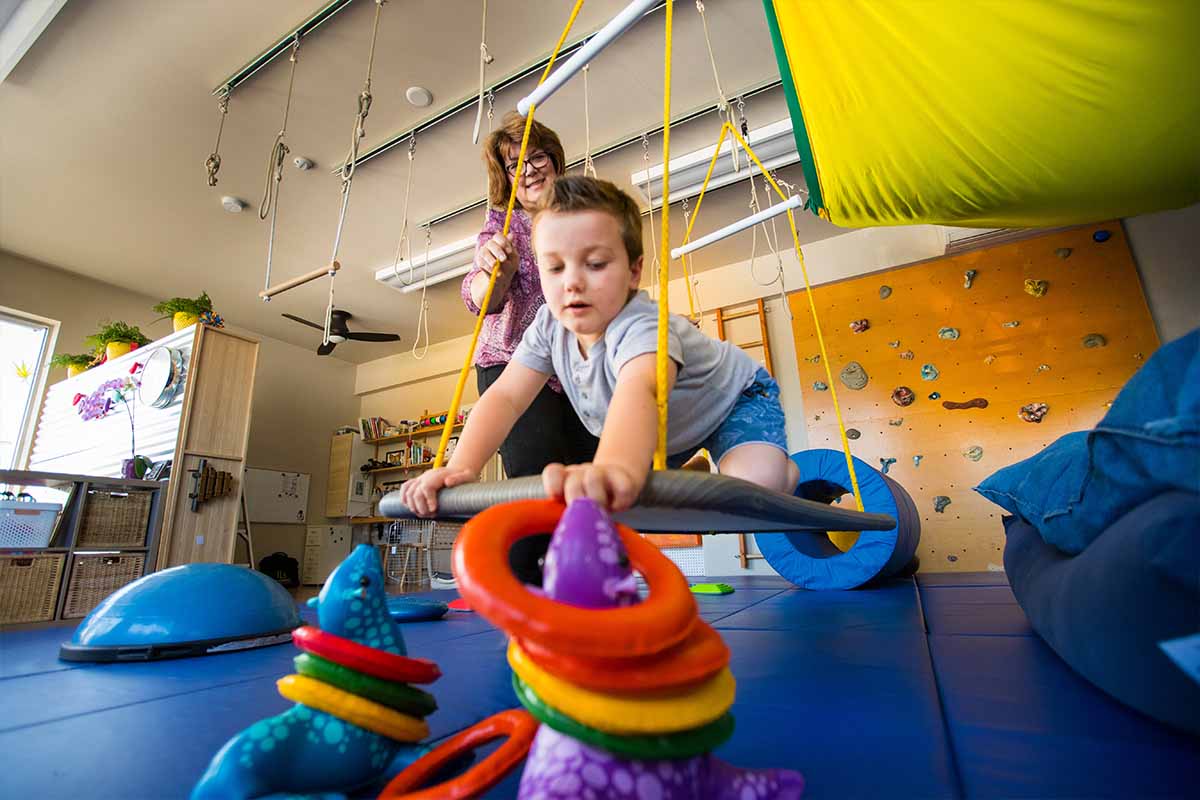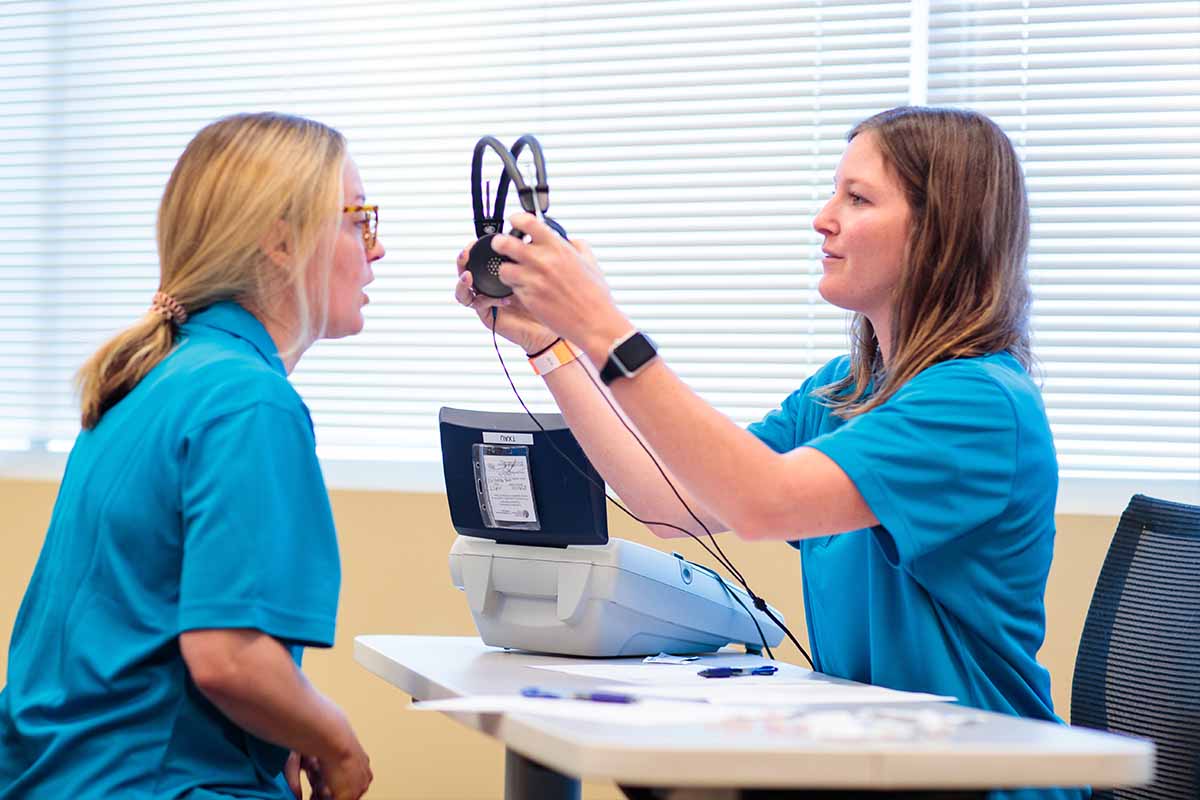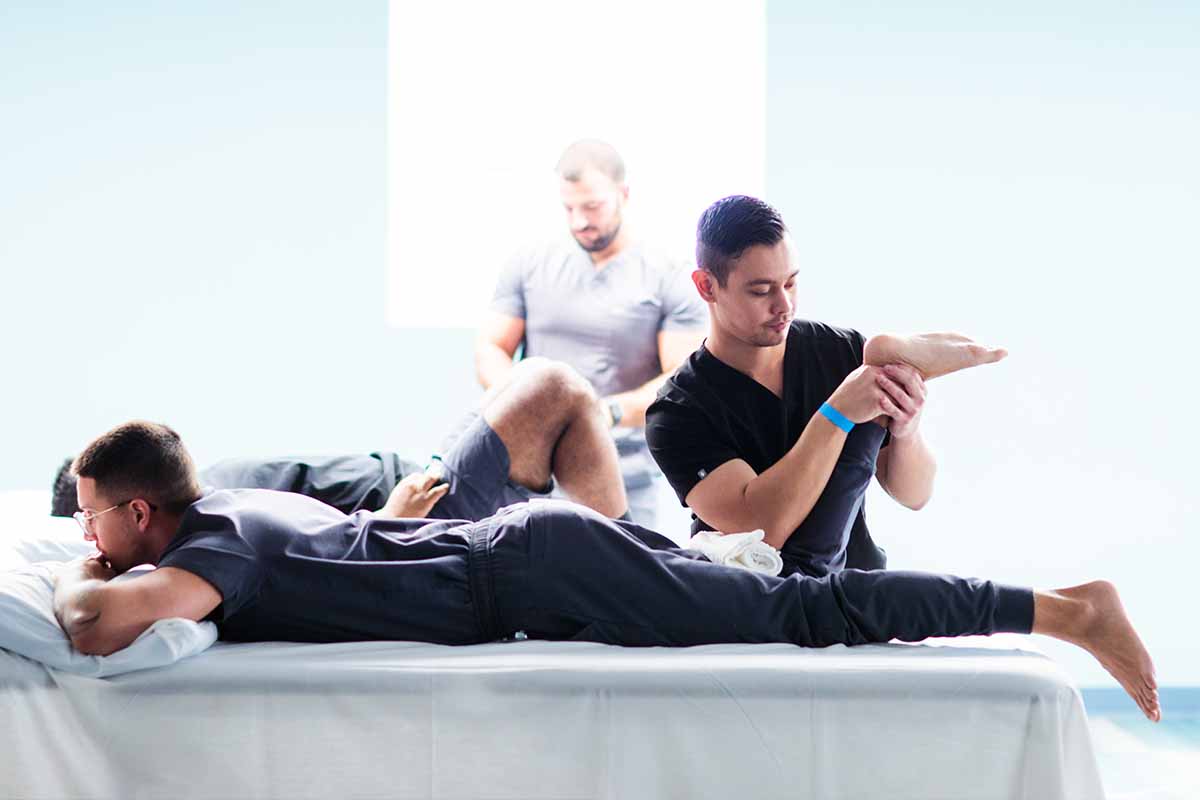In December 2017, Dr. Helen Carey sent an email to some of the occupational therapy faculty at University of St Augustine for Health Sciences at the St. Augustine campus to inquire about ways they could work together. She presented at the International Symposium for ALS in Orlando and her employer, Glyndwr University, UK enabled her to extend her stay to select a cross section of occupational therapy clinical practices and Universities to collaborate with on future projects.
“I immediately received a warm reception from St. Augustine campus,” Dr. Carey said. After a lunchtime meeting with four faculty members, including Dr. Kelly Layne, Dr. Carey returned to UK excited to recommend USAHS as the University to collaborate with.
Over two years later and the collaboration between the two Occupational Therapy programs continues to develop and grow stronger.
Student learning: Two cohorts (one last year and one this year) of students from the UK and US have worked together through the collaboration between Universities. This is predominantly through case based work where they share UK and US based case studies in mixed groups. This is introduced through a synchronised session where both groups of students can gain insight to the occupational therapy context of each country. The students then apply and explore further through small mixed group case study working where one of the sessions is facilitated either by Dr. Carey or Dr. Kelly Layne. The aim in student collaboration is to learn different perspectives and develop international friendships.
“I really enjoyed our international case study sessions with the American occupational therapy students,” Matthew Roberts, Cohort 17, Glyndwr University said. “Although the British and American health care systems are very different it was interesting to hear that challenges we experience in the UK, such as time and funding to deliver services are very similar to those experienced in America.”

Fieldwork placement opportunities: Two students from USAHS are planning to receive their Level two fieldwork in Wales, UK with Glyndwr University supporting them throughout their experience.
Research development: The collaboration between students provided Dr. Carey and Dr. Layne with significant insight to the globalization of occupational therapy. It became very clear to faculty and students that whilst delivery clinical practice can appear very different, the occupational therapy philosophy that underpins practice is identical. Faculty and students realized that they understand their own practice more by comparing it with another country.
“Speaking to the USA students helped me understand the differences and similarities between NHS and American healthcare and how occupational therapists overcome different barriers in different healthcare politics to keep their practice client centered,” Louis Canning, Cohort 16, Glyndwr University said.


“It was a pleasure to host Dr. Kelly Layne in UK for a week in June,” Dr. Carey said. During that time, Dr. Layne worked many of the occupational therapy delegates throughout UK and was a guest at Glyndwr University Faculty Away Day. Dr. Layne’s trip was partially funded through the Innovation Steering Committee’s innovation training funds.

Dr. Layne and Dr. Carey are now extending their work to Professor Daniel Cruz from Sau Paulo University, Brazil who is a visiting Professor at Glyndwr University. They are jointly publishing an editorial for the Brazilian Journal of Occupational Therapy regarding globalization of occupational therapy.
Dr. Carey has now been a contributing faculty member for USAHS since September 2018. It has enabled the two Universities to enhance their collaboration and USA students to benefit from a more diverse context by having a UK based contributor.
“It just shows how a simple email and lunch meeting can produce such positive impact for occupational therapy students and faculty,” Dr. Carey said.“Politically we often hear about the “special relationship” between our two countries, I feel privileged to be a part of this in occupational therapy.”











